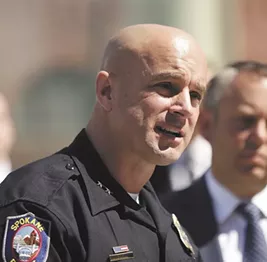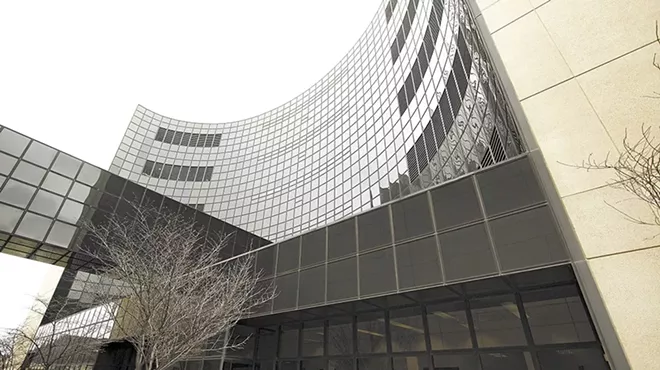In situations where suspects have only committed minor offenses — like possessing illegal drugs or failing to show up to court — and don't have a history of warrants out for other significant offenses, officers are encouraged to issue summonses requiring that suspects show up to court at a later date, Meidl tells the Inlander.
"The big question that we want our officers and supervisors to ask themselves is, 'Is this person an ongoing threat to the community?'" Meidl says. "If it’s something where this person is not going to be an ongoing threat, we’ll do a summons and they’ll be held accountable but we’ll do a summons to bring them to court at a later date to answer for the charges."
"If it is only possession of a controlled substance, if it is only that charge, we are directing our officers to issue a summons for that person," he adds. "If it is a drug charge with other charges, it would basically indicate that this person is a threat to the community so we would still book the person despite the drug charge."
A directive outlining the new arrest criteria was issued to the rank-and-file earlier this week, though officers will ultimately still have discretion to determine whether a suspect is an active public safety threat.
State law requires that officers book suspects for some offenses, like domestic violence, DUIs and violating protection orders require arrest and booking, Meidl adds. And repeat property crime offenders will not necessarily be set loose.
"If [a] person is clearly a repeat offender and a chronic offender and our records show they were just arrested a week ago for a property crime and they have this warrant, that’s something we’ll look more closely at," he says. "This is not open season."
The goal, like the emergency protocols that regional courts have taken to suspend judicial proceedings and release inmates from custody, is to limit the number of people cycling through the already overcrowded Spokane County Jail to prevent the transmission of COVID-19.
The shift comes as law enforcement agencies across the country grapple with how to conduct policing amidst a global pandemic. Numerous other police departments have taken similar measures, such as scaling back how frequently officers respond to calls to limit in-person human contact and delaying arrests for low-level offenses. Philadelphia Police have stopped arresting people for narcotics charges, and the police departments in Denver and Boulder have taken similar measures. While the Metropolitan Police Department in the District of Columbia continued to arrest for low-level offenses over the weekend, the department brass recently issued an executive order limiting bookings for misdemeanors and some nonviolent felonies.
Spokane Police officers are also taking other steps to protect themselves and the public from spreading COVID-19. Officers will be using social distancing during nonemergency interactions and will be taking reports over the phone when possible.
"It’s going to take the community to understand that while we’re in the season of COVID-19, things are going to look a little different for awhile," Meidl says. "The dynamics of where we’re at will change the process of how things are handled for a little while."



